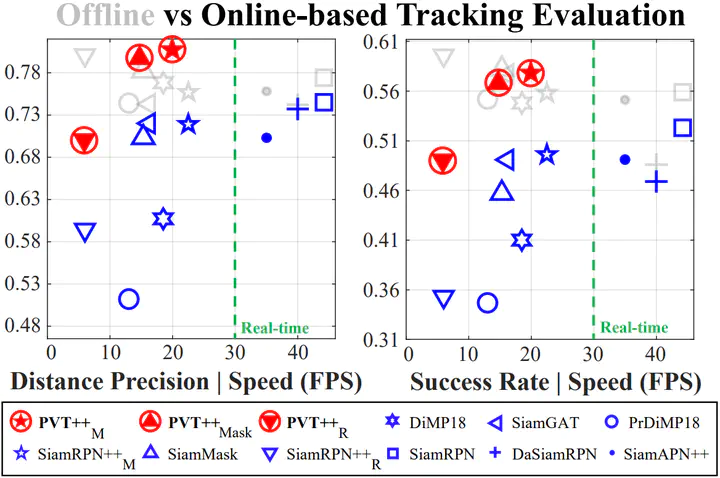
Abstract
Visual object tracking is an essential capability of intelligent robots. Most existing approaches have ignored the online latency that can cause severe performance degradation during real-world processing. Especially for unmanned aerial vehicle, where robust tracking is more challenging and onboard computation is limited, latency issue could be fatal. In this work, we present a simple framework for end-to-end latency-aware tracking, i.e., end-to-end predictive visual tracking (PVT++). PVT++ is capable of turning most leading-edge trackers into predictive trackers by appending an online predictor. Unlike existing solutions that use model-based approaches, our framework is learnable, such that it can take not only motion information as input but it can also take advantage of visual cues or a combination of both. Moreover, since PVT++ is end-to-end optimizable, it can further boost the latency-aware tracking performance by joint training. Additionally, this work presents an extended latency-aware evaluation benchmark for assessing an any-speed tracker in the online setting. Empirical results on robotic platform from aerial perspective show that PVT++ can achieve up to 60% performance gain on various trackers and exhibit better robustness than prior modelbased solution, largely mitigating the degradation brought by latency. Code and models will be made public.